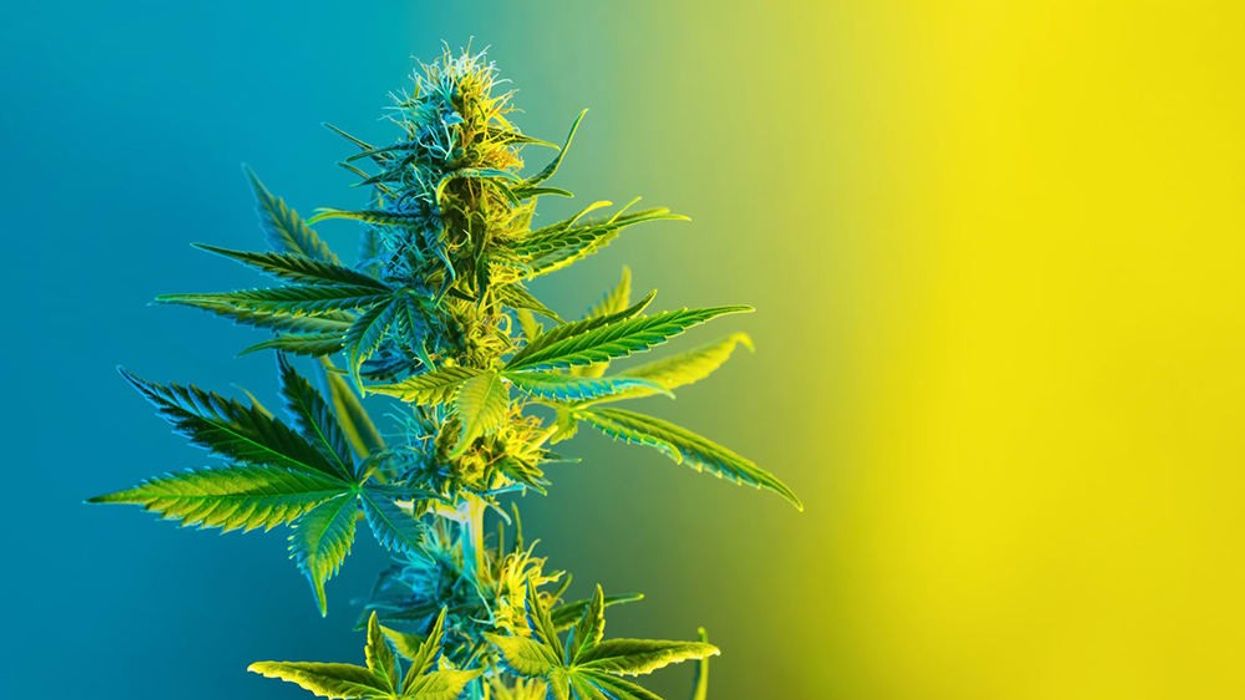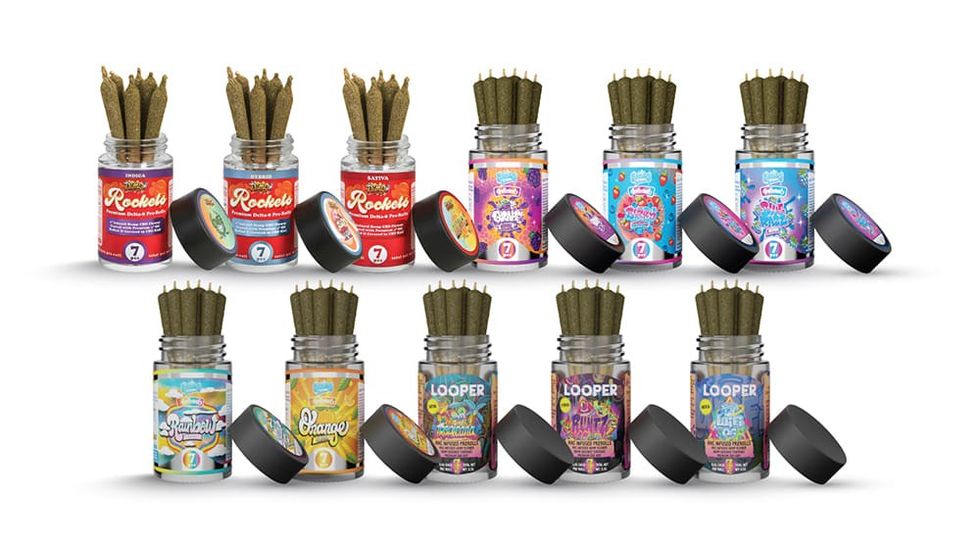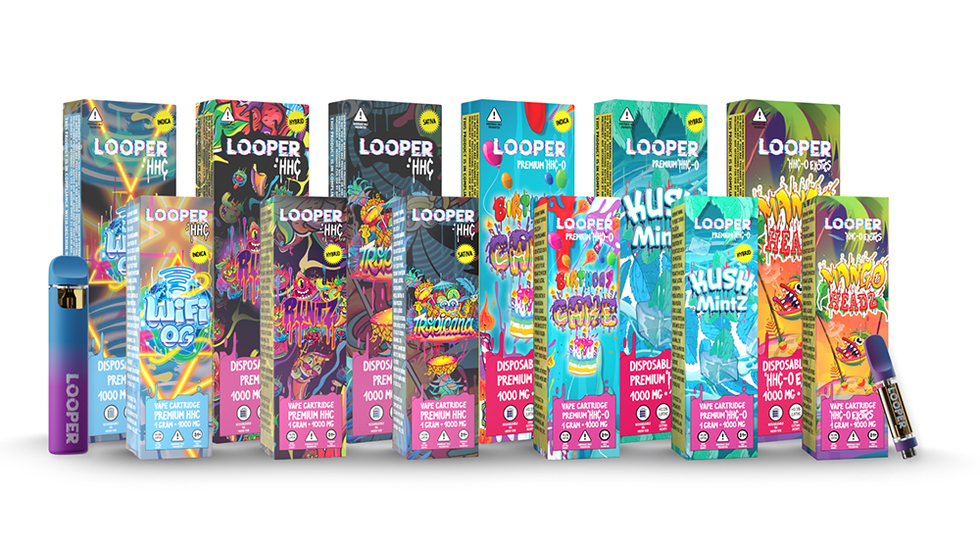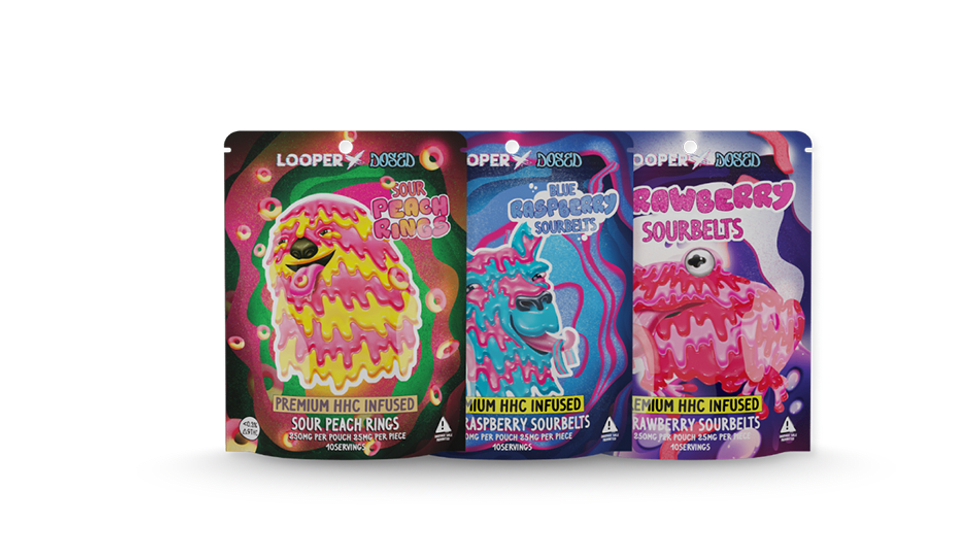Sign Up for The Bluntness Newsletter for Your Weekly Dose of Cannabis News
The paradox that keeps the federal ban on cannabis in place while local legislation allows businesses based on it to thrive continues to be the single most complicated issue in the industry today, affecting those operating in all corners of the country. Even humble, non-intoxicating CBD oil, which has become a trendy (and lucrative) component of chichi wellness creams and expensive smoothies from Brooklyn to L.A. is increasingly impacted by legal uncertainty.
With CBD, at least, the United States Food and Drug Administration is expected to soon weigh in. Despite its sudden ubiquity on pharmacy shelves, there is only one CBD-based medication currently approved by the FDA. (That’s Epidiolex, a seizure medication containing cannabis-derived CBD.) The safety and legality of nearly everything else is up for FDA review, and the results of that process may or may not strictly curtail which products can be offered in states w/o legal marijuana, or drastically alter how they can be marketed country-wide.
Most states allow consumers to purchase CBD in some way, shape, or form. How it can be delivered and, crucially, how it can be sold and marketed, varies wildly from state to state carrying huge impact. CBD that comes from hemp and carries no THC was made federally legal by the 2018 Farm Bill, a bill that finally took industrial hemp off the list of banned “controlled substances.” But that still doesn’t mean you can attribute magical healing properties to the stuff without solid proof.
So, let’s dig into the who’s, what’s, and why’s of the current market for CBD, as well as when and how increased federal scrutiny is likely to play out for businesses and consumers.
Why the FDA's Unsure
What is the FDA so worried about, you ask?
The agency’s cited concerns about CBD include:
-The long term effects of CBD use over time, particularly whether it may lead to eventual liver damage.
-The cumulative effect of regularly using multiple CBD products across categories, e.g, daily or weekly use of a CBD face cream, and a little CBD back balm, while also drinking an invigorating CBD latte in the morning.
- Whether or not “special populations” such as pregnant women, children, or the elderly need special guidelines around CBD product use.
- Whether the health benefits implied in marketing materials for a wide range of products be demonstrably proven
- Even if CBD proves totally safe for humans…can you safely give your dog a CBD biscuit??
These are all fair questions, though ones that have ironically been left unanswered by the longstanding halt on federal research into much of anything cannabinoid related. It seems a bit rich that the federal government should now deem these to be questions worthy of a closer look, only after the free market has forced their hand. But the public would still benefit from comprehensive answers.
Given that a vast amount of businesses and consumers in big population centers of the United States are being kept in urgent suspense, the FDA has vowed to provide the needed clarity on an expedited timetable. Dr. Amy Abernathy, the agency official leading this process has suggested that a significant update will arrive by the end of summer or early fall.
We should know any time now, basically.
In the Vacuum, States Disagree
Absent this pending federal guidance, state legislatures have had to wing it. Not surprisingly, the rules for CBD-based businesses have been drastically different depending on where their owners have set up shop.
This summer, Washington state’s Agricultural department decreed that CBD is, under no circumstances, allowed as a food additive or dietary supplement. New Jersey has taken an entirely opposite tact, explicitly clearing “hemp-derived” CBD as an ingredient in “cosmetics, personal care products, or products intended for human or animal consumption.”
Post-Farm Bill, hemp-derived CBD should technically be allowed anywhere. (And an oft-cited study by the Brightfield Group, an industry research firm, estimates that legal hemp might create a market boom for hemp-based CBD worth more than $20 billion by 2022.) But the government is still not convinced you should put it in food or claim it as a medical option.
So What's a CBD Biz To Do?
While there is only so much an individual CBD business can control here, there are a couple of best practices to successfully finesse the legal grey area.
Currently, “interstate commerce” is a key standard that draws increased federal interest. If a state has set out specific guidelines allowing CBD products inside its own borders, the federal government will likely back off. Sell it or ship it across state lines, and you might have a much bigger problem.
Avoiding any major health or wellness claims in marketing materials is also a good idea to stay on the FDA’s good side, though truly inconvenient for brands looking to establish themselves. Omitting using the names of specific diseases or adverse conditions that a product could treat, or even adjectives like “chronic” or “severe” that suggest treatment might be needed. Absolutist words like “cure” or “curing” should never be used. Suggesting your product is a natural substitute for existing pharmaceuticals, basically, a huge part of CBD’s whole appeal, can also risky.
Positioning something as a cosmetic instead of a remedy can be a workaround, up to a point. For reference, here’s the FDA’s current guiding distinction about when a cosmetic product crosses the line into “drug,” and comes under their jurisdiction:
“If a product is intended to affect the structure or function of the body, or to diagnose, cure, mitigate, treat or prevent disease, it is a drug, or possibly both a cosmetic and a drug, even if it affects the appearance.”
Keeping those in mind, and crossing your fingers that the FDA comes to a quick, and sensible decision is about as much as you can do. Other than keeping eyes on a news feed for alerts as to when the issue might finally be settled.
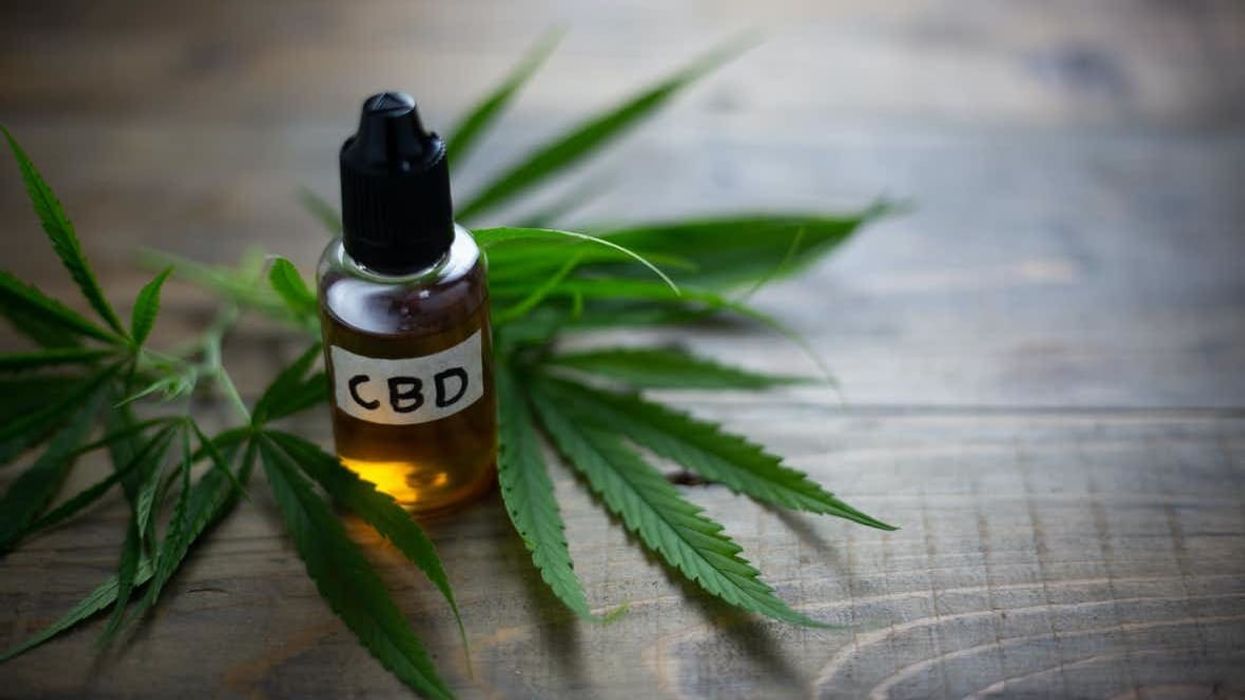






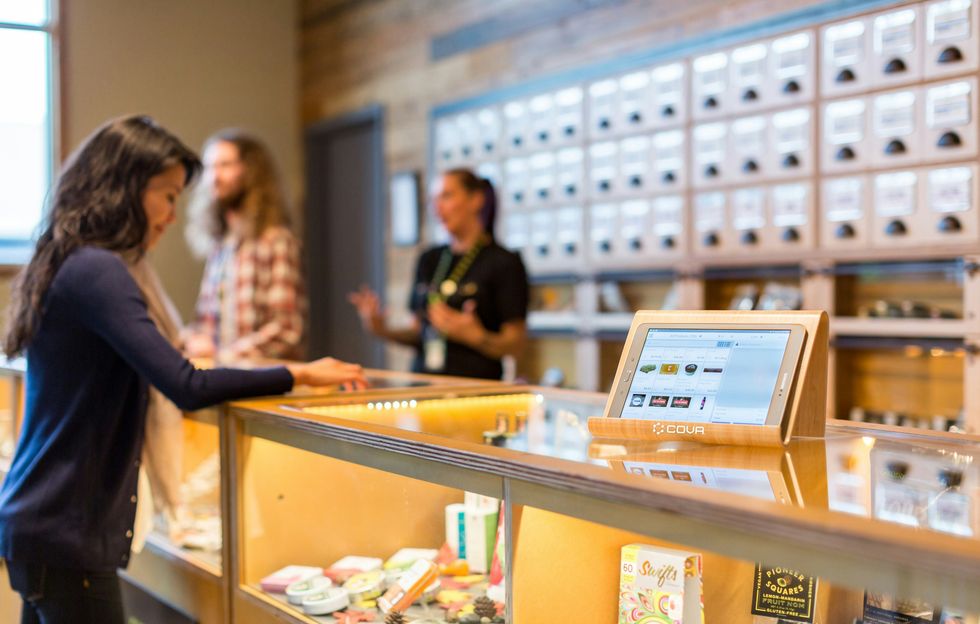 Dispensary Employee - The Bluntness Photo by
Dispensary Employee - The Bluntness Photo by  High Paying Jobs for Stoners: 11 Career Paths for Cannabis Lovers - The Bluntness Photo by
High Paying Jobs for Stoners: 11 Career Paths for Cannabis Lovers - The Bluntness Photo by  High Paying Jobs for Stoners: 11 Career Paths for Cannabis Lovers - The Bluntness Photo by
High Paying Jobs for Stoners: 11 Career Paths for Cannabis Lovers - The Bluntness Photo by  High Paying Jobs for Stoners: 11 Career Paths for Cannabis Lovers - The Bluntness Photo by
High Paying Jobs for Stoners: 11 Career Paths for Cannabis Lovers - The Bluntness Photo by  High Paying Jobs for Stoners: 11 Career Paths for Cannabis Lovers - The Bluntness Photo by
High Paying Jobs for Stoners: 11 Career Paths for Cannabis Lovers - The Bluntness Photo by 






 Strawberry Cough Strain Review - The BluntnessTHC Farmer
Strawberry Cough Strain Review - The BluntnessTHC Farmer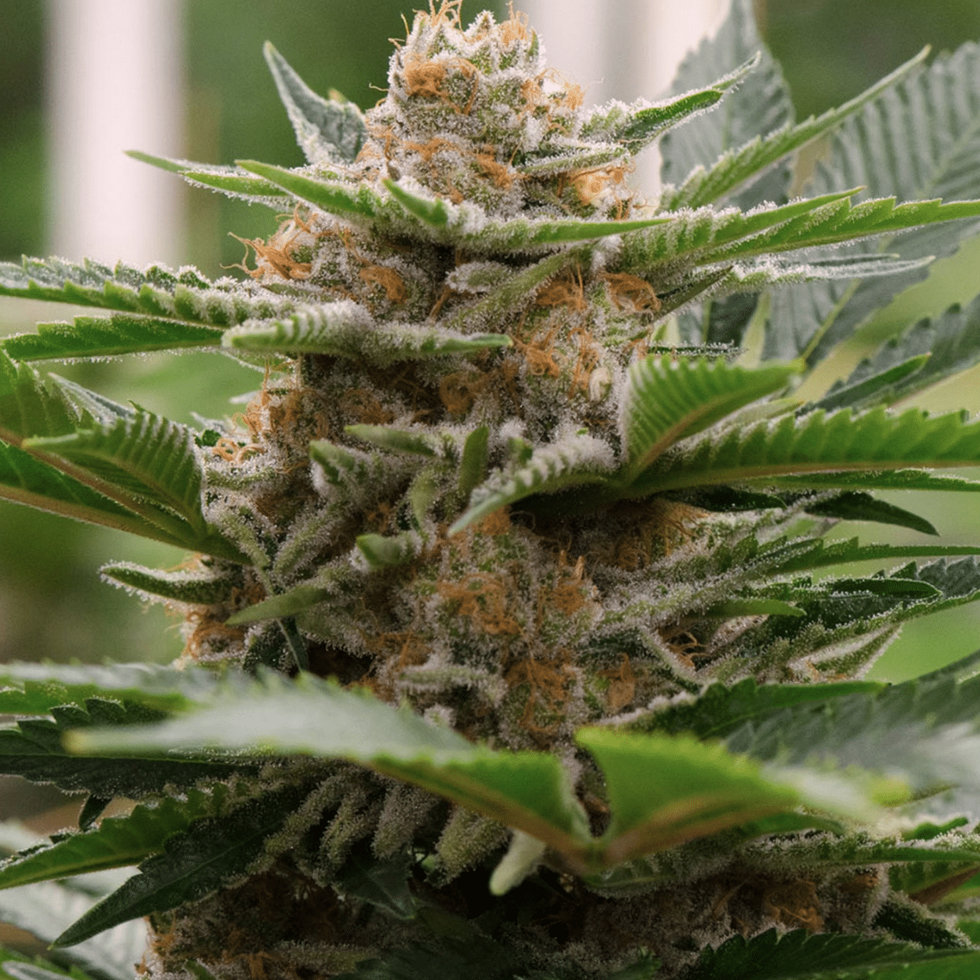 Strawberry Cough Strain - The BluntnessSeednest
Strawberry Cough Strain - The BluntnessSeednest



 Why are law enforcement officials trying to freeze out cannabis legalization? Follow the money.Image by OpenClipart-Vectors from Pixabay
Why are law enforcement officials trying to freeze out cannabis legalization? Follow the money.Image by OpenClipart-Vectors from Pixabay